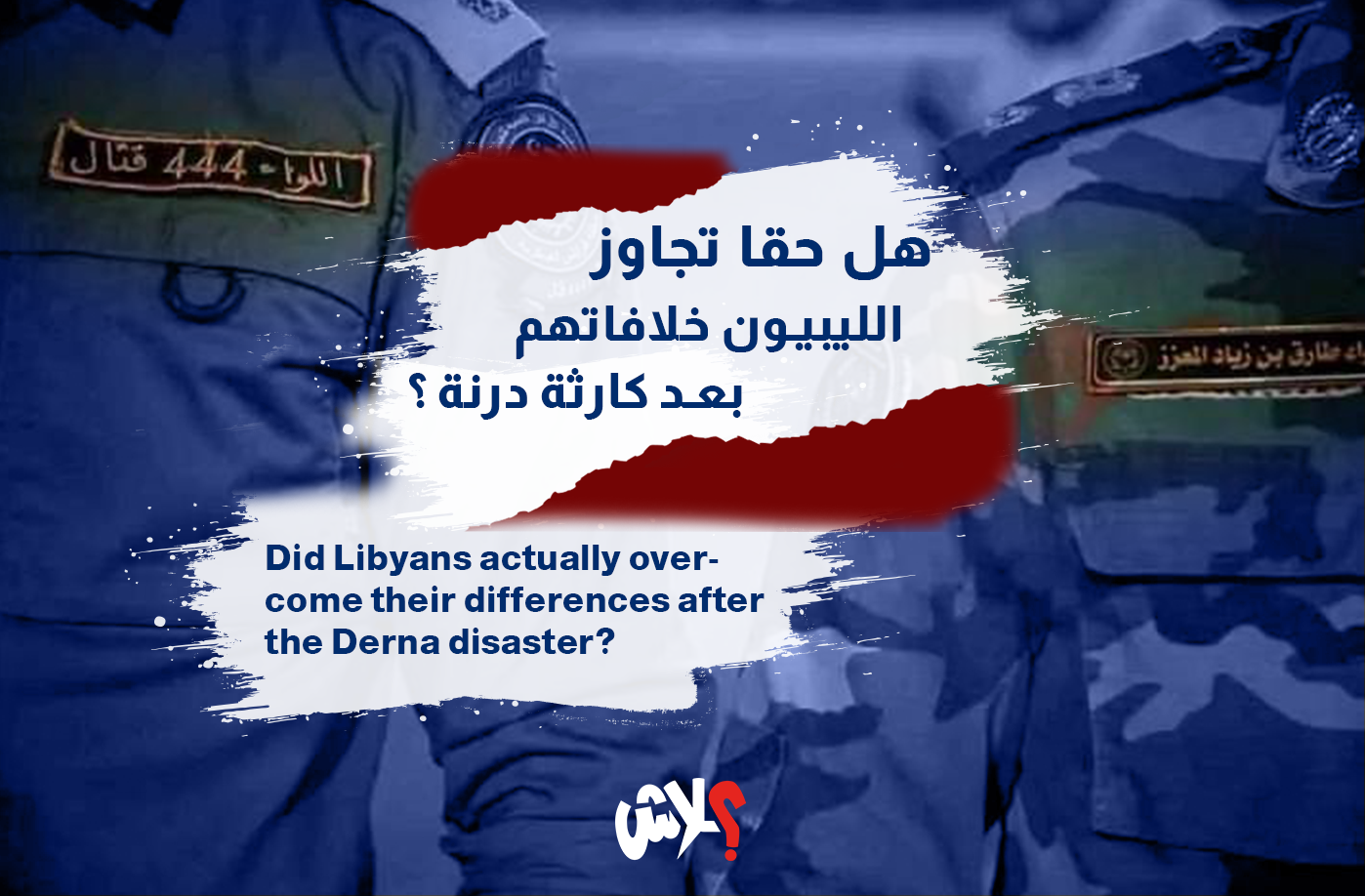Did Libyans actually overcome their differences after the Derna disaster?
Professor Ali Abdullatif Ahmida, author of the book (Libya: The Hidden History of Genocide), says that there are two things on which Libyans can come together (the leader and the war). These two factors throughout the ages have been able to unite the Libyans despite their differences, and the meaning of the leader is not necessarily to support him, but also to rebel against him, and war also does not mean merely carrying weapons, but also in confronting nature, the ruling class, corruption, and Aghila Saleh.
We believe that what happened in Derna is war, but this time against nature, corruption and the ruling class, as during the past days Libyans gathered in the afflicted Derna, and people from every village and city scrambled to meet the call of their people in the east of the country, and in one moment everyone forgot everything that happened between them, and only remembered that they are Libyans, (beaten with one stick); the camps that the leaders of the conflict in Libya had built for themselves and piled people inside under the pretext of their own interest have disappeared, literally not metaphorically.
Following the initial flood of feelings, which were sincere by everyone, there began to be asked questions scrambling to reach the surface of the Libyan land, asking: Why were we fighting? Are we the ones driving this conflict? How can people who, a few years ago, used to fight each other in arms, unite in a matter of hours?
The reality that the ruling class is trying to live on is the separation of all the ways that make the human masses in Libya communicate, as the geographical area in Libya was and still is a major barrier separating Libyans from each other, so that each human mass forms a mental image of the other bloc through the media the content of which is controlled by the ruling class.
The ruling class in Libya did not allow any party or entity to attempt to open paths of continuity between these masses of people crammed into their detention centers, as it suppressed every attempt to bring people closer together, and gave them space for direct discussion about their issues and differences. We always said when we met our people from East and west of the country, outside Libya discussing our issues, we found a great ability to reach a unified vision. We were standing in the same row when we talked about Libya. The existential question was always: Why cannot we agree inside Libya? Why must we leave the geography of Libya in order to be able to agree?
The answers were mostly superficial, and sometimes sarcastic, such as saying that Libya is a cursed land, and that our ancestors may have usurped it from its owners, or referring the matter to the societal restrictions that each human bloc imposes on its members; man is, in the end, the product of his environment.
Until the Derna disaster occurred!!
Yes, despite the sadness that spread across the entire Libyan land, for the first time during the past ten years, the ruling class was unable to prevent the Libyans from connecting the ties of their land from Ras Ejdir to Msa’ad, as during the first five days after the disaster, the military forces were truly unable to control the movement of Libyans.
This situation turned collectively to confront the ruling class and demand the remaining judicial authority to hold it accountable for the Derna disaster; the people of Derna did not stand alone in front of the ruling class, but everyone stood in front of the mosque of the companions, the symbol of the grieving Derna.
Thus, the educated class, so to speak, in Libya must have consciously understood what happened in Derna, as despite being catastrophic, it is considered a historical opportunity that can be built on, so that effort must be made to destroy the new camps that the ruling class has established for its own benefit, and that communication between Libyans is the first step to reaching a unified vision for their future.
The Libyans, having discovered the fact that they are hostages of the ruling class, which provides them with mental images that work to maintain its rule, must jump over the walls of these camps, and before that they must realize that they were hostages!
As for the ruling class, our struggle with them continues, and it will not stop here, they will continue to fortify their camps and to bring in new hostages, and we will continue to demolish the walls of these camps, until fate brings us an hour similar to the historic February hour, but this time we ought to be more prepared, more aware and experienced.
That's why whenever you find a beautiful or ugly voice coming out of the TV screen telling you that Tripoli, Benghazi or Sabha have decided;
Stone that voice, and keep your TV screen safe.

